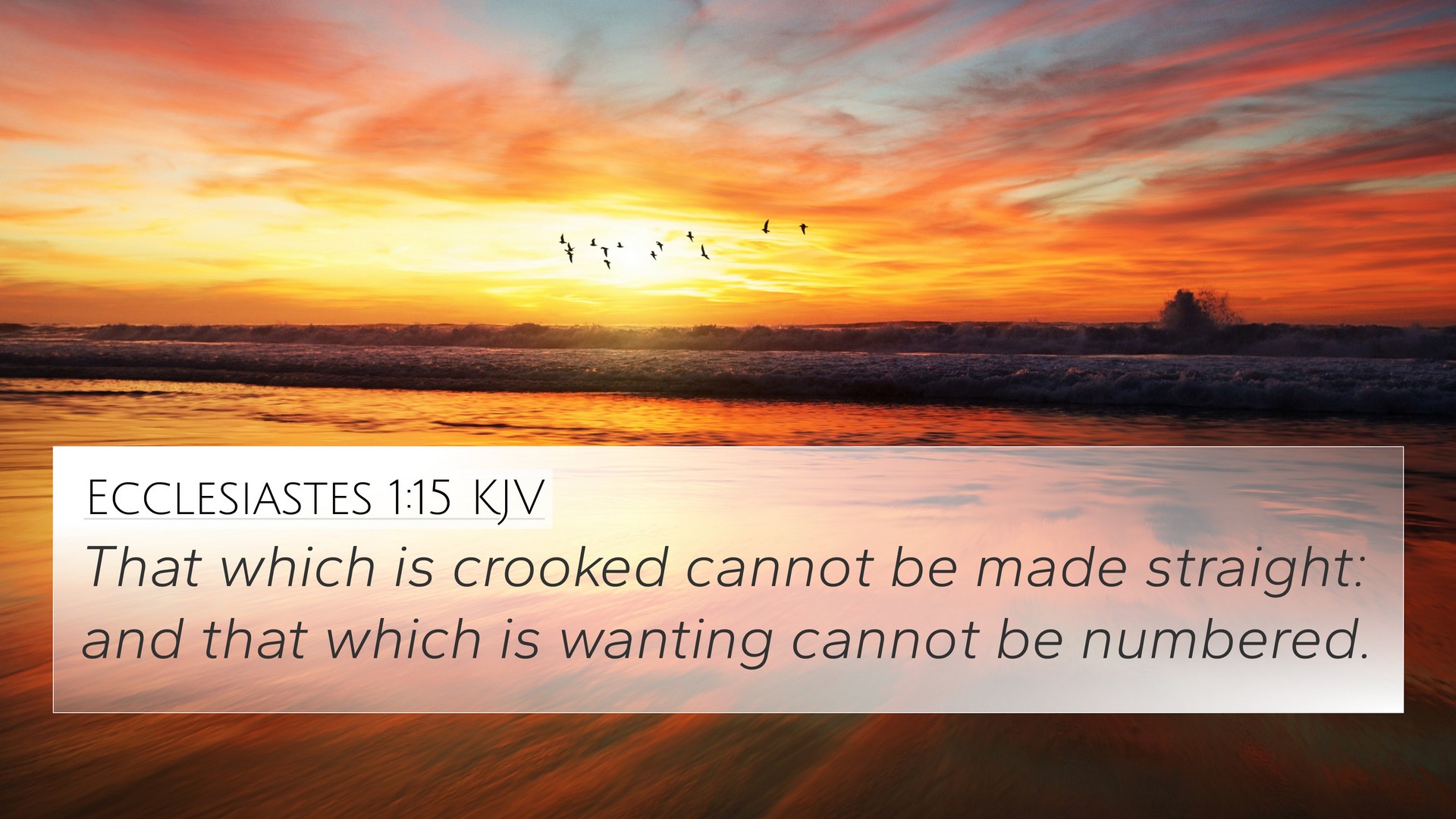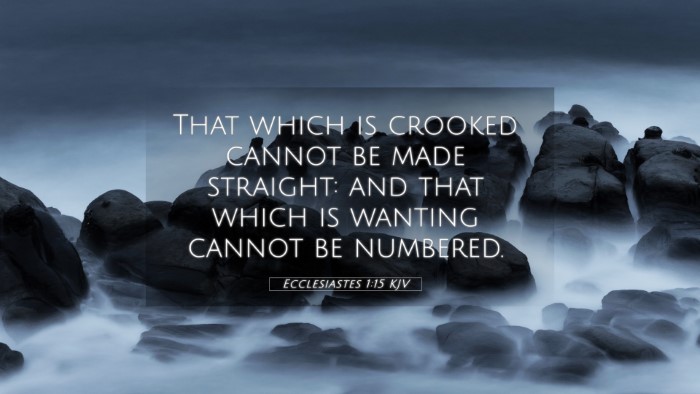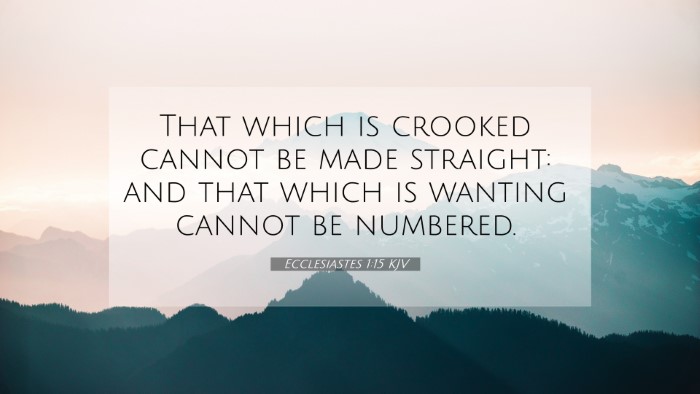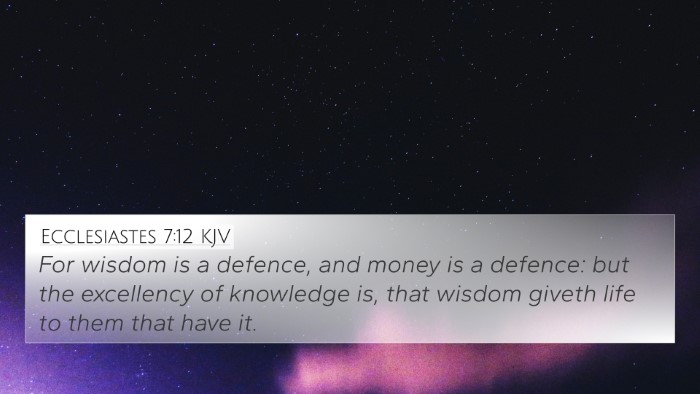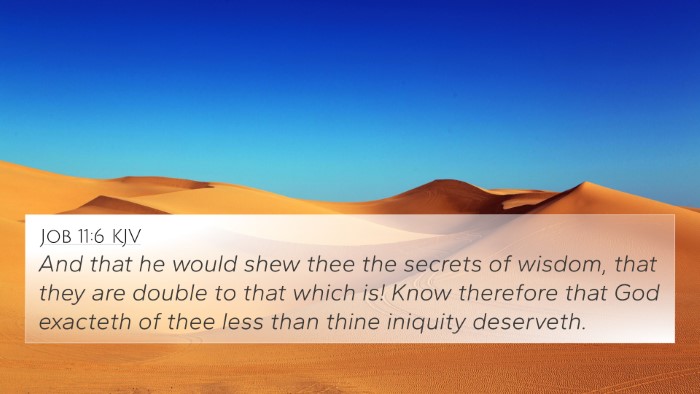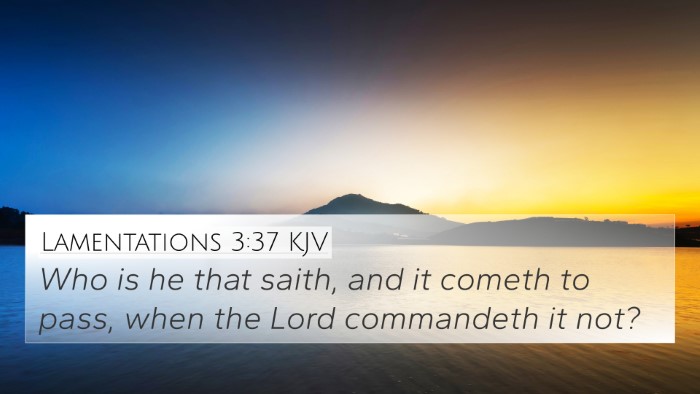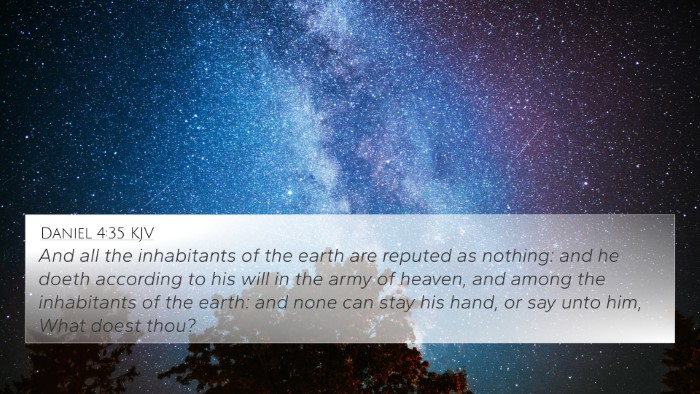Understanding Ecclesiastes 1:15
Ecclesiastes 1:15 states: "What is crooked cannot be made straight, and what is lacking cannot be numbered." This proverb speaks to the limitations of human endeavor and the inherent imperfections of life. The verse emphasizes the futility of attempting to alter certain realities.
Meaning of Ecclesiastes 1:15
Drawing on the insights from public domain commentaries, we can explore the depth of this verse:
-
Matthew Henry:
Henry explains that this verse highlights the impossibility of correcting that which is fundamentally flawed or broken. The human attempts to control or change certain situations can often prove futile. It serves as a reminder to recognize our limitations and the sovereignty of God over creation.
-
Albert Barnes:
Barnes elaborates on the notion that some things in life are destined to remain imperfect. He points to the idea that the human experience is marked by inherent struggles and that not every deficiency can be rectified. Instead of pursuing unattainable goals, one should seek contentment and understanding in the face of life’s imperfections.
-
Adam Clarke:
Clarke adds that this verse resonates with the concept of wisdom and the acceptance of life's paradoxes. It encourages believers to acknowledge the weaknesses and challenges they encounter, and to trust in God's plan rather than futilely attempting to "straighten" what is crooked in their own strength.
Cross-References for Ecclesiastes 1:15
There are various Bible verses that relate to the themes presented in Ecclesiastes 1:15:
- Proverbs 21:30: "There is no wisdom, no insight, no plan that can succeed against the Lord." This verse reiterates that human efforts are ultimately subject to divine authority.
- Isaiah 40:4: "Every valley shall be exalted, and every mountain and hill made low; the crooked shall be made straight, and the rough places plain." This contrasts the impossibility of certain changes with divine capability.
- Romans 8:20-21: "For the creation was subjected to frustration, not by its own choice, but by the will of the one who subjected it..." This speaks to the inherent limitations of the world due to sin.
- James 1:17: "Every good gift and every perfect gift is from above, coming down from the Father of lights." This underlines reliance on God for what is good, acknowledging human limitations.
- Ecclesiastes 7:13: "Consider the work of God; for who can make straight what He has made crooked?" An explicit connection that emphasizes divine sovereignty over human ingenuity.
- Philippians 4:11: "Not that I speak in respect of want: for I have learned, in whatsoever state I am, therewith to be content." This calls for acceptance of one’s situation, aligning with the principle in Ecclesiastes.
- 2 Corinthians 12:9: "But he said to me, 'My grace is sufficient for you, for my power is made perfect in weakness.'" This illustrates the theme of accepting human limitations while relying on God’s strength.
Thematic Connections
Ecclesiastes 1:15 connects to broader Biblical themes:
- The Limitations of Human Wisdom: This verse resonates with the recurring theme in Ecclesiastes regarding the futility of human wisdom apart from divine understanding.
- The Sovereignty of God: The acknowledgment that there are matters beyond human control reflects the Biblical assertion of God's supreme authority over all creation.
- Acceptance of Life's Imperfections: Many other scriptures advocate for acceptance and contentment, particularly when confronting life's challenges.
How to Cross-Reference Ecclesiastes 1:15
Understanding how to cross-reference Bible verses can enhance your study. Here are some helpful tools and methods:
-
Bible Concordance:
A concordance can help you find the meanings and contexts of various words and phrases, linking verses across the Bible.
-
Bible Cross-Reference Guide:
Utilizing a cross-reference guide can provide insights into interconnected themes and verses, enriching your study.
-
Online Bible Tools:
Many online platforms offer verse analysis and can suggest related scriptures to explore.
-
Study Groups:
Engaging in group studies allows for shared insights and perspectives on how different scriptures interrelate.
Conclusion
Ecclesiastes 1:15 serves as a profound reminder of the gaps between human efforts and divine wisdom. Emphasizing acceptance of life's crooked paths encourages believers to focus on their relationship with God rather than incessantly striving against what cannot be changed. Through connecting this verse with others, deeper understanding and thematic appreciation can be achieved. Embrace the wisdom in scripture and continue to explore these connections for a richer Biblical experience.
